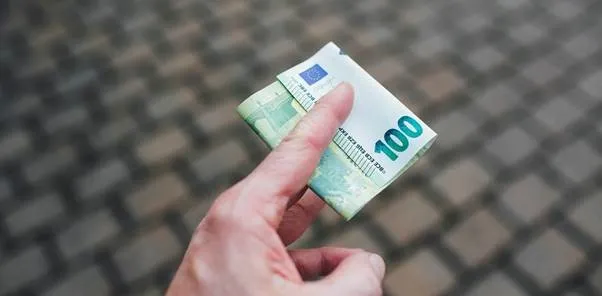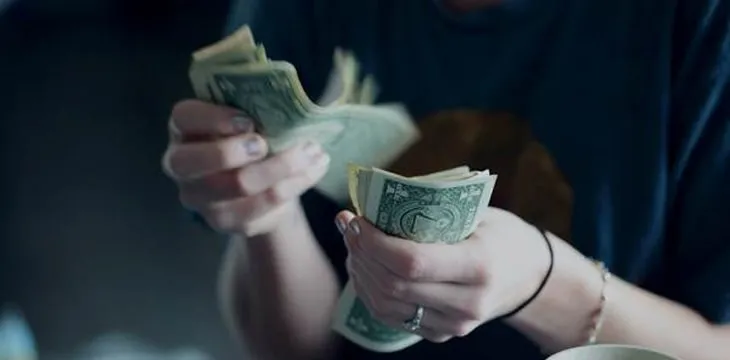|
Getting your Trinity Audio player ready...
|
Overheard, between Alice and Bob:
Bob: I wish Bitcoin was simple, like ordinary money.
Alice: I never understood ordinary money. I wish it was as simple as Bitcoin.
Bob: What do you mean? If I put money into my bank, at least I know where it is—and what it is.
Alice: Really? So if your employer pays money into your bank account, what actually happens?
Bob: Well, they’re sending me money, aren’t they? At least I hope they are.
Alice: But it’s all done between computers, nothing in the real world actually changes.
Bob: No, that’s true. But the difference between that and Bitcoin is that if I wanted, I could ask the bank for cash, and they’d have to give it to me. Then I’d know I had real money.
Alice: If everyone did that, the banks would soon run out of cash. Only a tiny proportion of a currency exists as cash.
Bob: OK, well even if they couldn’t give me cash they’d still be able to write me a cheque or send me the money online—because they’ve got it.
Alice: Again, if everyone wanted to do that, the bank wouldn’t have enough. They lend most of it out and couldn’t get it back in a hurry. They only keep a small amount on hand because they know how much they usually need. It’s called fractional reserve banking.
Bob: OK, but these are technicalities. Money is still money and you won’t have any trouble spending a U.S. dollar almost anywhere in the world, whereas with Bitcoin, you’d be lucky to do anything useful with it.
Alice: They may not be as different as you think. U.S. dollars and Bitcoins both exist on computer networks as records of value transferred from one party to another. So where’s the real money?
Bob: Well, I don’t know, but I’d rather have my “record of value” in dollars, thank you very much.
Alice: That’s up to you. But remember when you pay for something on your credit card, it works because your credit card company trusts you to transfer some of that intangible money in your bank account to them. But it’s all just numbers on spreadsheets. In the end, it only works because everyone believes in it.
Bob: So what’s wrong with that?

Alice: Well, nothing. But I’m just showing you that ordinary money is as intangible as Bitcoin. And the value of both depends on what people think it is. Sterling notes from the Bank of England say on them “I promise to pay the bearer £10” (or whatever denomination the note is). So a bank note is not even claiming to be £10, just a “promissory note” for £10. But if you go to the bank with it and ask to be paid £10 like it says, they’d just give you another £10 note. So where is the actual money, and not just something that can be exchanged for it?
Bob: You’re confusing me.
Alice: Good. So you see that ‘real’ money isn’t as simple as you thought. And it’s pretty hard to say exactly what it consists of. Now let’s turn to Bitcoin. Just like with dollars, value is transferred online in the form of transaction records. That’s what the blockchain records: me paying you for a cup of coffee. The main difference is that Bitcoin doesn’t exist outside of the system on which the transfers are recorded. You can’t keep it under the mattress.
Bob: But what about all this ‘public and private key’ stuff? Why can’t I just have a simple password like I do for online banking or my PIN code at the cashpoint?
Alice: You can access Bitcoin very simply, just with finger recognition if you have a Centbee wallet. And if you sign up to Invisible MoneyButton, you can even buy online, up to a value you choose, without having to agree each time. It can be as simple as you feel comfortable with.
Bob: Well OK, but it still doesn’t quite seem real.
Alice: That’s just a matter of psychology. Don’t you sometimes feel when you’re visiting a new country for the first time and are given a bunch of strange banknotes that they don’t feel like real money? And yet they’re using exactly the same system you’re familiar with, just with different pictures on the notes. So it’s not surprising that Bitcoin doesn’t feel real at first because it is more different than that. But you’ll get used to it too.
Bob: I’ll never stop thinking of the dollar as real money.
Alice: And I’ll never stop thinking of the dollar as just as unreal as Bitcoin.

 06-30-2025
06-30-2025 





